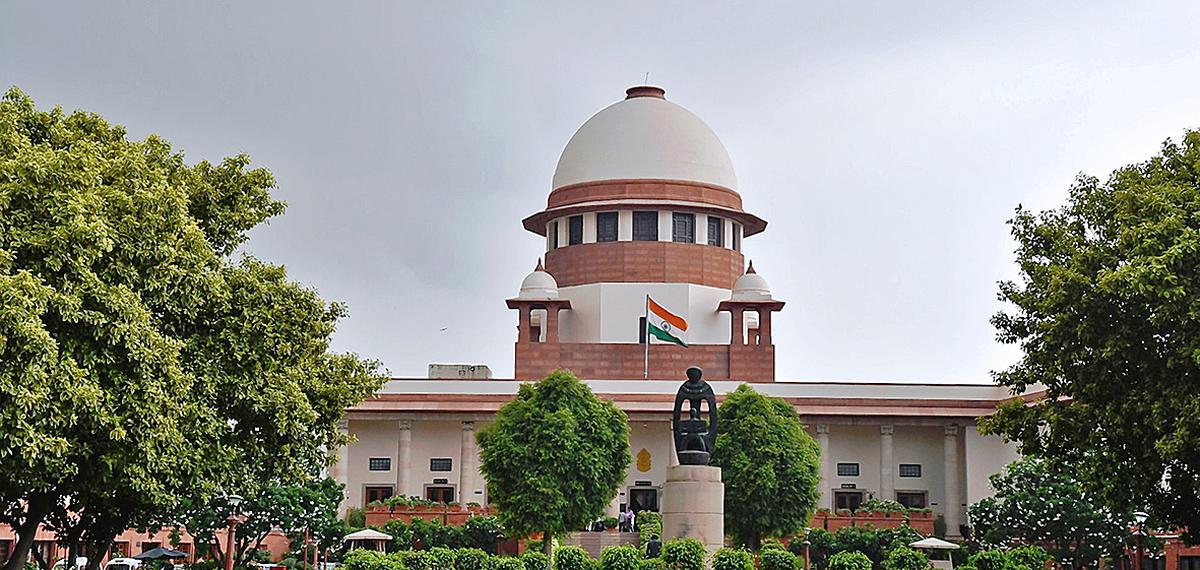The Supreme Court’s observations on the role of political influence in this case are particularly telling
 KRC TIMES Desk
KRC TIMES Desk

The Supreme Court’s recent decision to revive the trial of Chhote Singh, a former BSP MLA from Uttar Pradesh, in a three-decade-old double-murder case underscores the pervasive issues of prolonged delay and political influence that plague India’s judicial system.
This landmark ruling not only breathes new life into a stagnant trial but also sends a strong message against the undue influence of political power on legal proceedings. The case against Chhote Singh, along with nine other accused, stems from the gruesome double murder of Rajkumar and Jagdish Sharan on May 30, 1994.
Despite the severity of the crime, the trial has been marred by delays and political manoeuvring, allowing the accused to evade justice for almost three decades. The Supreme Court’s decision to revive the trial highlights the urgent need for judicial intervention in cases where the legal process is subverted by political influence.
The Supreme Court’s observations on the role of political influence in this case are particularly telling. The bench noted that the trial court’s order from May 19, 2012, which allowed the withdrawal of prosecution against Chhote Singh, was influenced by his political power.
This decision was challenged by both the accused and the victims, but the case remained pending before the Allahabad High Court for 12 years, leading to a prolonged stagnation of the trial proceedings.
This delay, exacerbated by the HC’s repeated adjournments, is a stark reminder of how influential figures can manipulate the judicial system to their advantage. The bench’s criticism of the HC’s approach underscores the need for timely and decisive action in the face of such dilatory tactics.
One of the most significant aspects of the Supreme Court’s ruling is its critique of the trial court’s rationale for allowing the withdrawal of prosecution. The trial court had argued that the withdrawal was in the public interest, given Chhote Singh’s good public image as an elected member of the Legislative Assembly.

Mail your Resume: info@krcfoundation.org
However, the Supreme Court firmly rejected this reasoning, emphasising that political status should not serve as a shield against prosecution for serious crimes.
The bench’s assertion that “merely because an accused person is elected to the Legislative Assembly, it cannot be a testament to their image among the general public” is a powerful statement against the misuse of political power.
It underscores the principle that justice must be blind to status and influence and that the rule of law must prevail over political considerations.
The Supreme Court’s decision to set aside the withdrawal of prosecutions is a call for greater judicial integrity and accountability. The bench rightly pointed out that the nature of the crime-a double murder committed in broad daylight-warrants rigorous prosecution, regardless of the accused’s political connections.
Allowing the withdrawal of prosecution in such cases undermines the very foundation of justice and erodes public trust in the judicial system. Furthermore, the bench’s order to revive the trial sends a clear message to lower courts and judicial authorities to remain vigilant against political interference.
The judiciary must act as a bulwark against the misuse of power and ensure that justice is delivered impartially and expeditiously.
The Supreme Court’s ruling in this case has broader implications for the Indian judicial system. It highlights the need for systemic reforms to address the issues of delay and political influence that continue to hamper the administration of justice.
One potential reform is to implement stricter timelines for the disposal of cases, particularly those involving serious crimes and influential figures. The judiciary must also adopt a more proactive approach to dealing with adjournment requests and other dilatory tactics that delay justice.
Additionally, there should be greater accountability for judicial officers who fail to uphold the principles of impartiality and integrity. The pursuit of justice must remain paramount, ensuring that the legal system serves all citizens equally, regardless of their status or influence.


